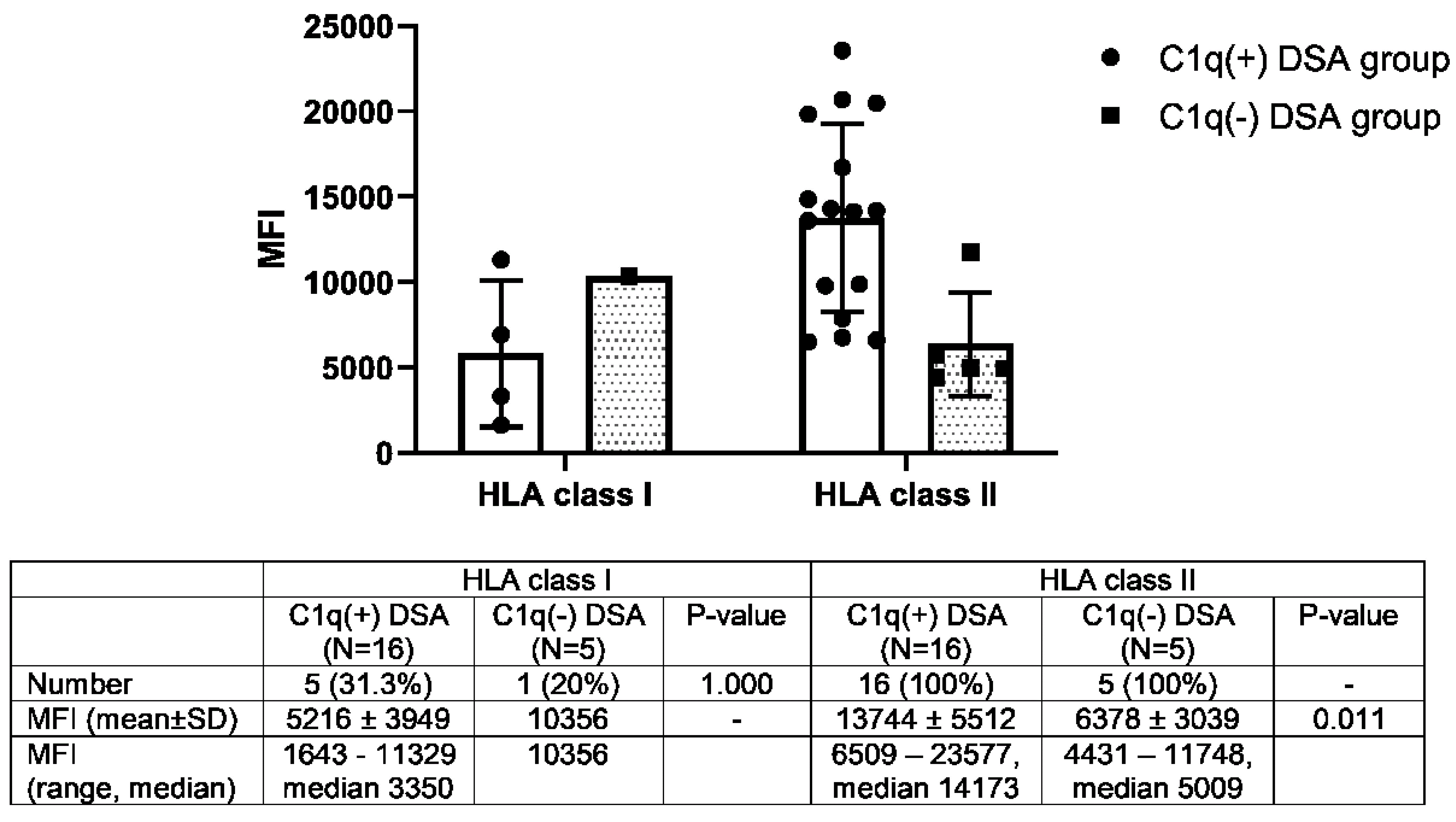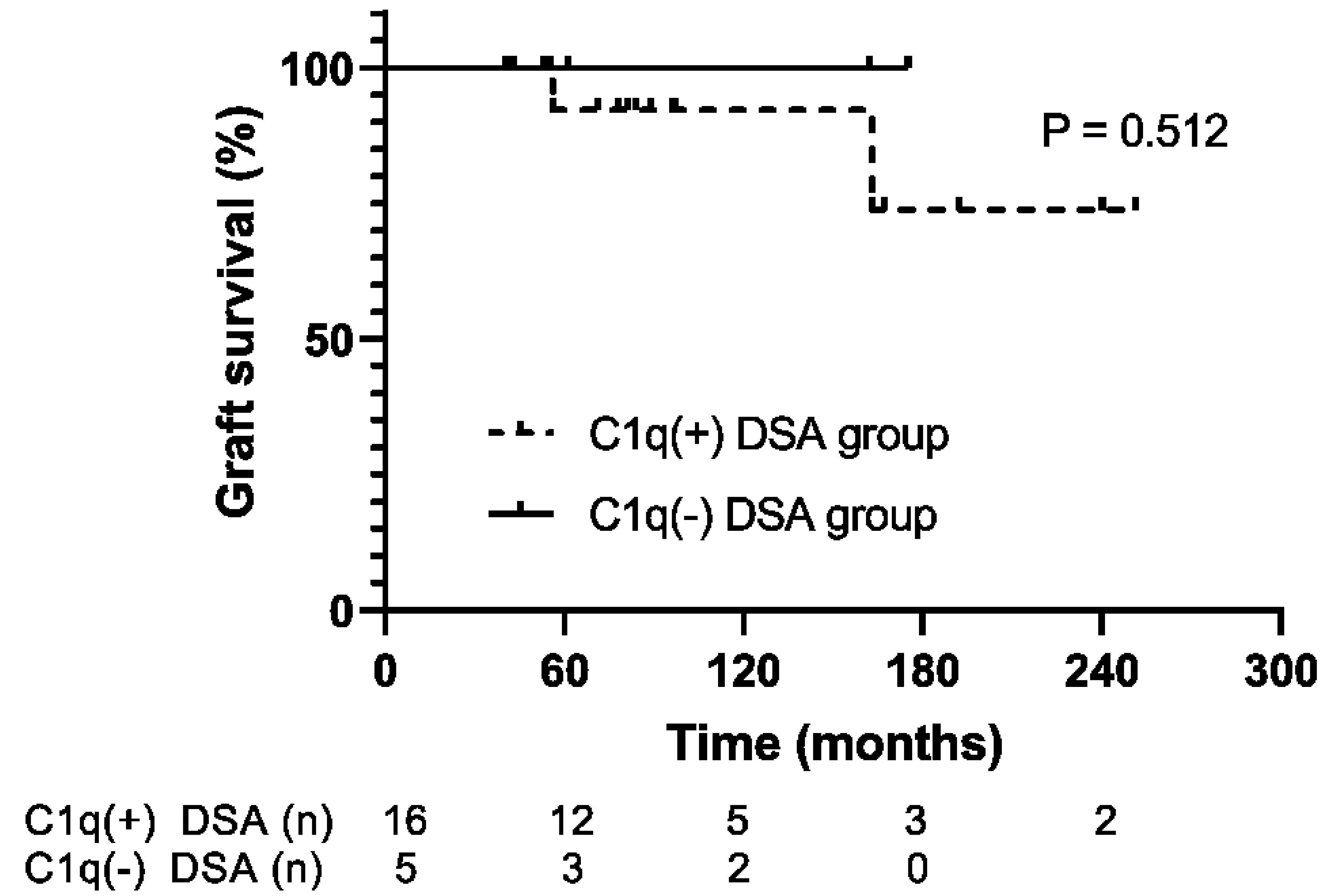Antibody-Mediated Rejections with C1q-binding and without C1-Binding Donor-Specific Antibodies in Kidney Transplantation
Asan Medical Center, Seoul, Korea, Republic of
Meeting: 2022 American Transplant Congress
Abstract number: 1059
Keywords: Kidney transplantation, Rejection
Topic: Clinical Science » Kidney » 44 - Kidney Acute Antibody Mediated Rejection
Session Information
Session Name: Kidney Acute Antibody Mediated Rejection
Session Type: Poster Abstract
Date: Sunday, June 5, 2022
Session Time: 7:00pm-8:00pm
 Presentation Time: 7:00pm-8:00pm
Presentation Time: 7:00pm-8:00pm
Location: Hynes Halls C & D
*Purpose: All donor-specific antibodies (DSAs) are not clinically relevant. Therefore, the C1q assay has been recently used, but its clinical meaning and usefulness should be investigated more. This paper studied the clinical characteristics of kidney transplant (KT) recipients who had antibody-mediated rejection (ABMR) with C1q-binding and without C1q-binding DSA.
*Methods: Among the 5,097 patients who received KT in a center between 2000 and 2020, 21 had C1q assay test results with DSA when ABMR was diagnosed. Clinical and pathologic data were compared between 16 and five patients with C1q-binding DSA and without C1q-binding DSA, respectively.
*Results: The peak mean fluorescence intensity of HLA class II DSA was significantly higher in the C1q(+) compared with the C1q(−) DSA group (13,744 ± 5,512 vs. 6,378 ± 3,039; P = 0.011) (Figure 1). No patient in the C1q(−) DSA group showed a peritubular capillary C4d stain score of ≥2 (37.5% vs. 0%; P = 0.262). Moreover, the C1q test results were changed in the clinical course. Furthermore, graft survival was not significantly different between the two groups (P = 0.512 by log-rank test) (Figure 2).
*Conclusions: ABMR with C1q(+) and C1q(−) DSA may have different clinical characteristics. However, C1q positivity can change and may overlap in the clinical course. Thus, further studies are necessary to identify underlying mechanisms and clinical application of the C1q assay.
To cite this abstract in AMA style:
Jeon J, Baek C. Antibody-Mediated Rejections with C1q-binding and without C1-Binding Donor-Specific Antibodies in Kidney Transplantation [abstract]. Am J Transplant. 2022; 22 (suppl 3). https://atcmeetingabstracts.com/abstract/antibody-mediated-rejections-with-c1q-binding-and-without-c1-binding-donor-specific-antibodies-in-kidney-transplantation/. Accessed January 26, 2026.« Back to 2022 American Transplant Congress


